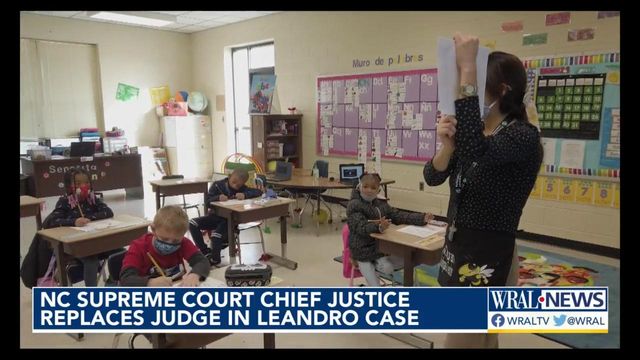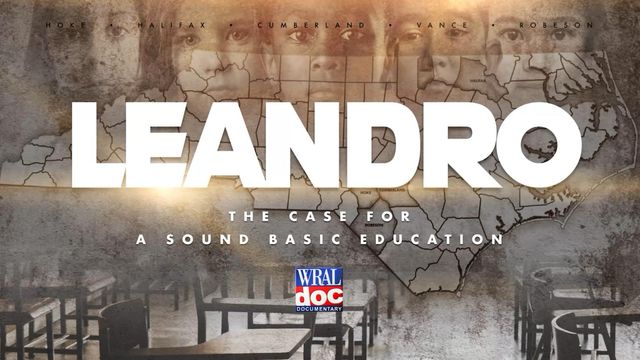Republican judge taking over for Democrat overseeing Leandro case
How the Supreme Court later decides to proceed could affect how quickly the court-approved 'Leandro Plan' is implemented, if at all.
Posted — UpdatedCourts have for years found that not all North Carolina children have access to a "sound basic education."
How the Supreme Court later decides to proceed could affect how quickly the court-approved plan is implemented, if at all.
Before Robinson's appointment, Lee had up to 30 days to review the impact of the new state budget on the plan.
The state Supreme Court plans to take up the appeal no matter what happens in Superior Court. The purpose of sending the matter back to Superior Court for a month is for the judge to review the how the state budget affects the issue at hand. According to the Supreme Court order, the Superior Court judge must "make any necessary findings of fact and conclusions of law" and issue any "amended order" that may be appropriate.
A week later, the General Assembly passed a new state budget, signed into law by Gov. Roy Cooper, that funded, according to analysts, about $760 million of the more than $1.7 billion called for. It included other education spending not called for in the plan.
The Leandro plan eventually calls for at least $5.6 billion in new, annual education spending at the state level, which would be a more than 50% increase. It also calls for numerous policy changes related to school assessment and academic turnaround, among other things.
The issue before the courts concerns the Court of Appeals panel ruling that blocked the more than $1.7 billion fund transfer.
While only part of the plan is involved in the dispute, how the state Supreme Court decides to proceed could indicate how or when the full plan is realized. If the court finds Lee's decision was constitutional, it could pave the way for future orders appropriating the rest of the funds for the plan. If the court finds Lee's actions were not constitutional, the Leandro parties would need to seek another way to implement the plan.
• Credits
Copyright 2024 by Capitol Broadcasting Company. All rights reserved. This material may not be published, broadcast, rewritten or redistributed.






